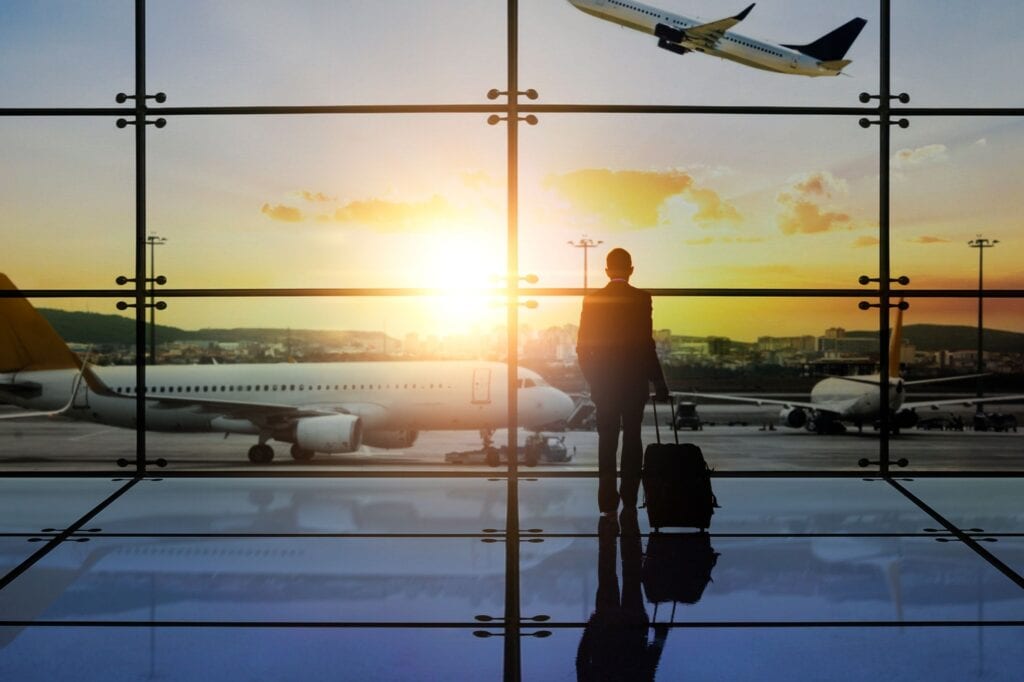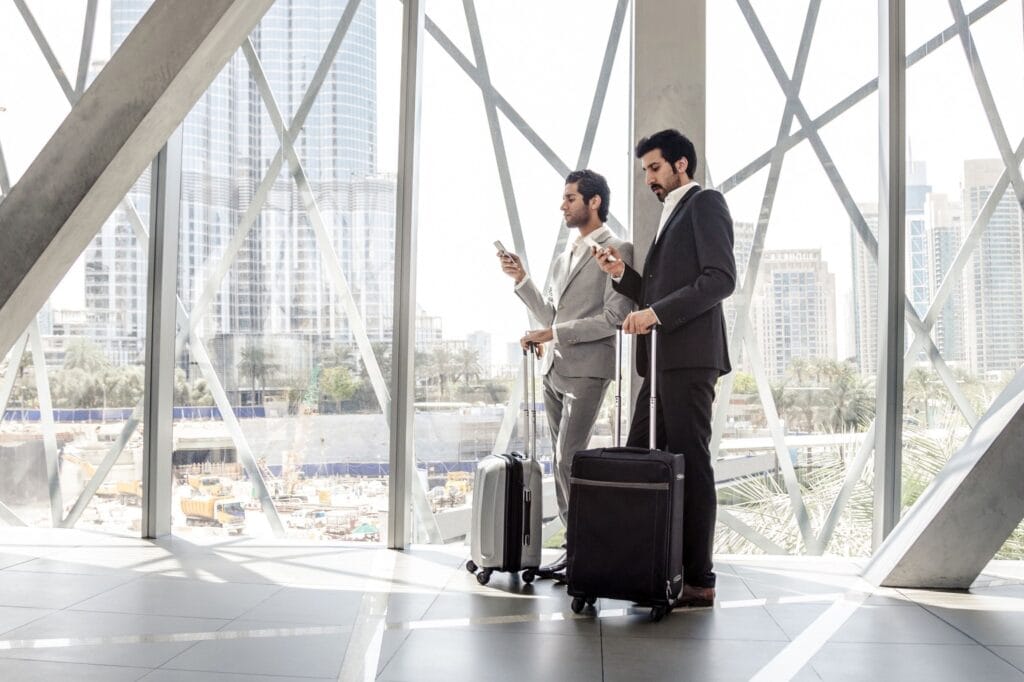Accounting for 12% of airline travel, business trips have many different purposes. They can take the form of a short trip for meetings, a long-haul trip for international events, or – becoming increasingly popular – a “bleisure” trip in which people combine business and leisure. In some cases, a corporate event may involve living and working abroad for months or years on end. The fact being, there is no such thing as a ‘one size fits all’ business trip despite the best efforts of the travel industry to try and package such events.
Because they are so diverse, each business trip comes with its own set of unique needs and the purpose and duration of the trip can affect the way you approach the booking significantly.
Here we run through some of the more popular types of business trips and consider some of their specific demands. By understanding how certain business trips compare to one another, you will become more efficient in creating cost-effective travel plans for your company, from takeoff to touchdown!
Different types of business travel
There are numerous types of business travel available, including:
Event and conference travel
Business professionals attend corporate events and conferences from time to time, which typically include seminars, workshops, or networking sessions. The events create opportunities for professional learning and development as well as facilitating networking among peers, potential clients, and service providers.
Internal meetings and visiting offices
For businesses with multiple offices across countries, business travel is essential for keeping the organization cohesive, connected, and aligned. Executives often travel to visit different offices to collaborate on projects and plan business strategies. Additionally, these visits help to foster a more integrated culture within the company.
Industries that participate in the greatest amount of business travel include wholesale trade, food processing and services, and utilities.
Company retreats
Some businesses organize corporate retreats to help teams grow stronger and build company culture through activities. They can also provide remote teams with some much-needed “face-to-face time” — this is especially important for remote-first businesses and businesses that don’t have any physical offices at all.
Client meetings
Executives need to travel to meet clients in person from time to time. For example, face-to-face meetings or informal gatherings are a business culture for companies in Japan. Therefore, corporate travel is essential to maintain strong client relationships.
Trade fairs
Business professionals from B2B or B2C companies may need to travel to exhibit at trade fairs, which are also known as trade shows or trade exhibitions. These trade exhibitions are an important channel for some businesses for direct sales, building brand awareness, and customer relationships.
Whether manning the stand or paying a visit to see the latest inventions and developments in their industries, many professional people can spend a significant amount of their working lives organizing, attending and traveling to and from trade shows and fairs.
Did you know the largest trade show in the world is reported to be ‘World Expo’ in Japan? It’s held every five years, is attended by over 28 million visitors, and goes on for six months! That’s a lot of business travel.
Transfers and offshore work
Business professionals sometimes need to relocate to a different city or country for many reasons, such as working on a long-term project, setting up a new team or business process, or transferring knowledge from one location to another.
Long-term transfers are more challenging and complicated than short-term business travel, especially if they involve relocating to another country. For example, businesses may need to sort out visas and taxation paperwork for their staff. They’ll also need to support the staff with issues like cultural differences, housing, and settling their lives in a new environment.
Bleisure travel
Finally, we have bleisure travel. This is a hybrid style of travel in which business professionals mix business trips with leisure travel together. A study by Expedia Media Solutions found that over half of business trips nowadays include some leisure activities.
Understandably, business professionals prefer to extend their business trips and make the most of their travel experience to include some leisure activities, like sightseeing and relaxation. This hybrid travel style can benefit both employers and employees. By allowing bleisure travel, businesses encourage their staff to volunteer for business trips. At the same time, the staff can benefit from a relaxing break and arriving back at the office refreshed and recharged.

Booking complicated business travel
Now that we have unveiled the diversity of business travel, it’s clear that a successful trip relies on detailed and calculated planning. Let’s take a look into the nuts and bolts of travel arrangements. We’ll discuss all the important details you need to consider including transportation, accommodation, and travel policy.
Business travel and transportation
When looking for transportation options, it is not just as simple as booking tickets. Here are some tips to keep in mind:
- Which transportation is more budget-friendly?
- Where will the travelers be going?
- Which transportation is the most ideal option, such as a car rental, a high-speed train, or a short-haul flight?
- Does your company need to book transportation for multiple travelers in groups?
- Which transportation options would meet the sustainability goal of your company and lower your carbon footprint?
- Do any travelers have mobility challenges or other accessibility needs?
- Are you going to offer business-class tickets or other perks and upgrades for senior executives?
Business travel and accommodation
There are many options that you can consider for accommodation, including hotels, Airbnb, and even renting apartments for short-term stays. There are some areas to decide on before arranging accommodation for corporate travel:
- What is the budget assigned to the business trip? Are there any budget-friendly accommodations available?
- Will travelers need access to amenities such as a kitchen or laundry, front desk, printer, or gym, etc.?
- Do any travelers have reduced mobility or accessibility needs?
- Is the accommodation secure and in a safe location? Are there security cameras or security personnel?
- Are travelers required to share a room or apartment with others? Are there any privacy concerns?
- Will you offer luxury hotels and perks for senior executives?
Why are travel policies essential for corporate travel management?
A well-structured corporate travel policy is the cornerstone of successful business trips. These policies provide clear guidelines for bookings, last-minute changes, and more, to ensure efficient use of company resources and minimize any disruption. Therefore, it is important to create a comprehensive corporate travel policy before arranging any business trips to facilitate expense management and travel planning.
Partnering with a friendly business travel agency for your next business trip
In the world of corporate travel, creating travel itineraries or travel policies can soon turn into a time-consuming task. It is no wonder that executive assistants and secretaries are always overwhelmed by company travel plans.
That’s where a business travel agency comes into play. Not only will a knowledgeable and efficient business travel agent provide professional travel support, but they can even become an extension of your team. They will create itineraries aligned with your company’s travel policies and maximize the efficiency of the whole journey. By working with a trusted business travel agency, you can streamline a complex process into a cost-effective solution.

Business Travel and Accommodation FAQs
What are the main types of business travel?
In today’s business world, there are several types of business travel that professionals engage in. Whether you’re looking to travel for business meetings, trade shows, client visits, or team-building exercises, each type of business trip has a purpose. As the number of travel options for business travelers increases, those in charge of creating travel itineraries can easily become overwhelmed. This is where we come in!
How can I choose the right accommodation for my business trip?
When considering business travel and accommodation, it’s very important to align the choice of stay with your company’s travel policy and your own personal preferences. Finding the right accommodation, after all, can significantly improve your travel experience and overall productivity while on the trip.
What factors should I consider when choosing a type of business accommodation?
There are several factors you should consider before choosing business accommodations. You’ll want to consider the location, price, and amenities available during your stay.
Are there cost-effective options for arranging corporate travel accommodations?
Yes, there are various options for arranging business travel accommodations, ranging from self-booking to a corporate travel management agency like ourselves. You’ll just want to consider your available time and resources to decide whether you want to create your own travel itinerary or have a specialist team manage it for you.


